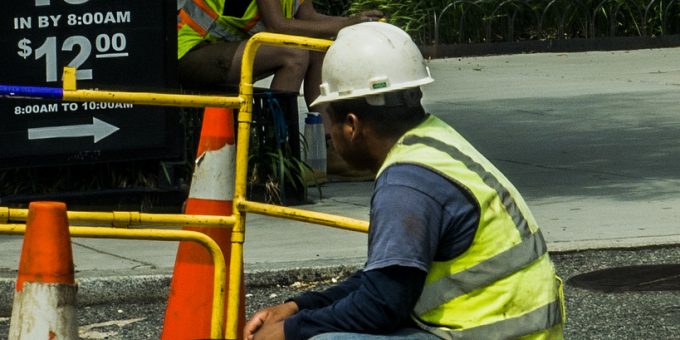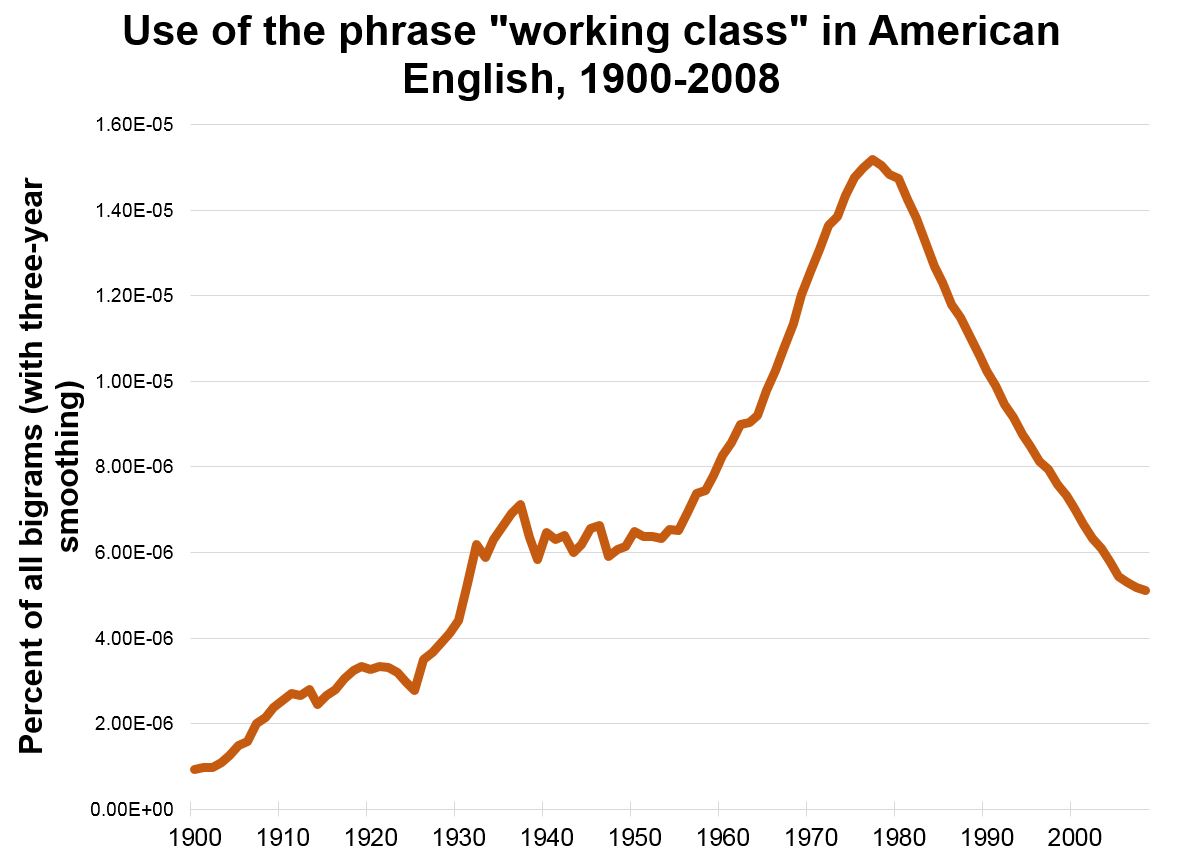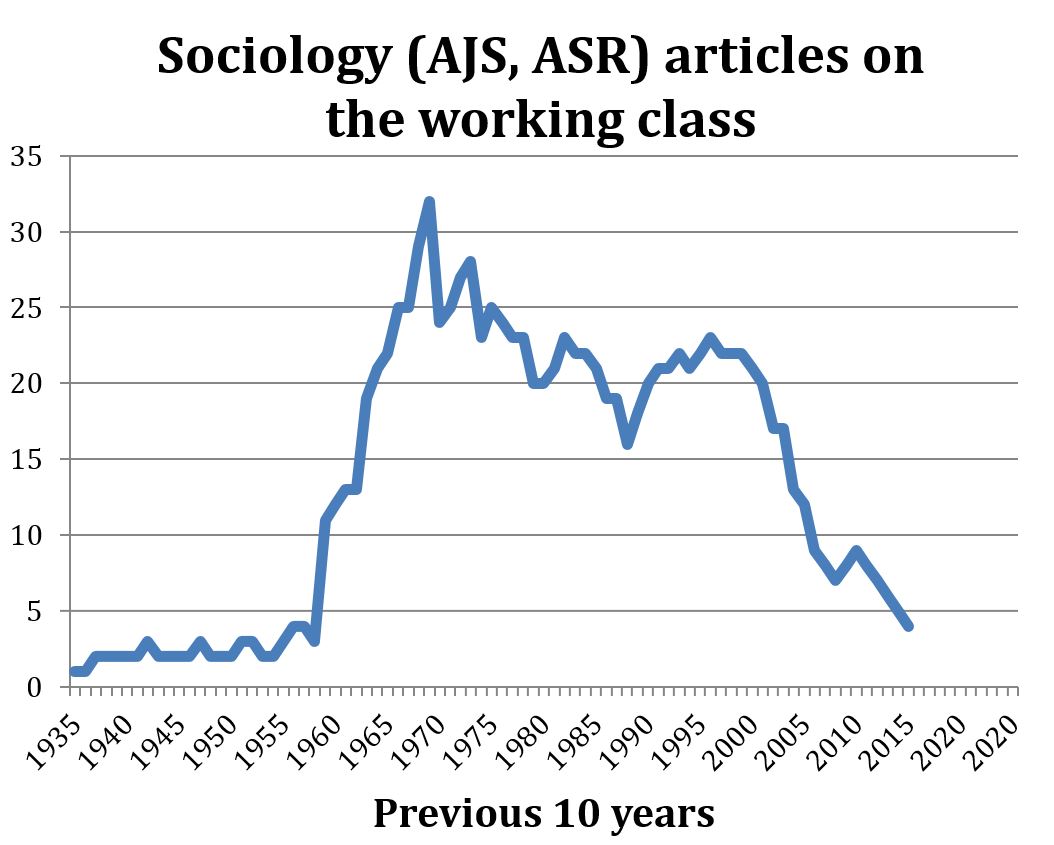
Photo by Philip Cohen / FlickCC https://flic.kr/p/fdZFvy
Trump and the neglect of the working class
Among the many forces contributing to the surprising Trump election was the shift of many White working class voters to vote for the upstart candidate. For years, these working-class families had been hurting; their incomes stagnated, good jobs became hard to find, and their health suffered. More importantly, entire working-class communities declined. It was not just personal economic misfortune, it was a class.
The problems of the White working class were not unknown, but they were not often addressed very directly. Sometimes, the most common advice was they should get more training or send their kids to college – advice that could sound more like a middle-class put-down than a realistic policy addressing their problems. But, for the most part, the working class was just ignored, a neglect that made them ripe for Trump’s appeals. This neglect was a general cultural phenomenon; a Google ngram count of the phrase “working class” in American books shows a spike in the Depression Thirties and an even stronger growth from the mid-1950s to the mid-1970s. But after the mid-1970s, there is a steady decline, implying a lack of discussion just as their problems were growing. The implicit message seemed to have been that their problems didn’t matter.

U.S. sociology was not immune from this broader cultural trend. A count of the frequencies of “working class” in the titles or abstracts of articles in the American Journal of Sociology and the American Sociological Review shows a quite similar if even more dramatic pattern: rapid growth in the 1960s, peaking in the 1959-1969 period, a steady interest for the next two decades and then an abrupt decline beginning in the 1990s. These articles on the working class were not insignificant; even through the 21st century, the authors include a number of ASA presidents. But overall, working-class issues seem to have lost their salience, as if even American sociology was also telling them that they didn’t matter.

Perhaps the Trump election, which was in part a symptom of this neglect, may also produce its cure. Election post-mortems in the media have focused more attention on the white working class than they have received in years. Academe may soon follow. Arlie Hochshild’s Strangers in Their Own Land, and, in political science, Katherine Cramer’s The Politics of Resentment, are encouraging signs. But Trump was certainly dangerous medicine for what ails our professional discourse.
Reeve Vanneman is in the sociology department at the University of Maryland.

Comments 6
Jerome Krase
January 20, 2017for an ethnic take on this unsurprising result you might interested in "Italo-Trumpism"
http://www.iitaly.org/magazine/focus/op-eds/article/italo-trumpism-in-nyc
pikachu chu
December 9, 2019Thank you for providing this interesting and fascinating information. You can experience many interesting games here. shell shockers
Jennifer B. Hamm
March 21, 2020The working class is the main asset of every nation. So it must not be neglected at any cost. I appreciate that they have focused on this issue and write about the avoidance of the working class and also get content tips from www.practiceofthepractice.com/7-content-tips-that-will-bring-more-online-traffic-to-your-website/ to improve the system. such writings are the says to make the people aware of such kind of important topics.
Cejok Malik
June 19, 2020Thank you for such informational information. You can get all latest updates if minecraft pe apk here. Blood Of The Young
Daniel E. Nash
October 22, 2020Trump has been neglecting the working class. His only concern is to make policies against weak countries like Afghanistan. America has been doing brutality in Iraq, Afghanistan, and Syria but I can prefer them to visit at www.resumesservicesreviews.com to get their academic work. Thanks for sharing this working class news there!
Jess Walker
October 27, 2020Thanks for this post. Very informative and interesting.
Jess Walker from this website.